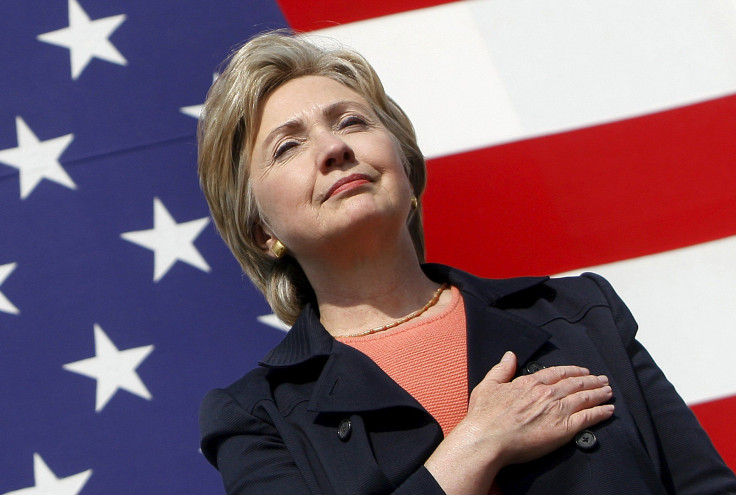Hillary Clinton: 2016 Advantages -- Bill Clinton, Gender, Fundraising, Foreign Policy -- Carry Risks

WASHINGTON -- Hillary Clinton enters the 2016 presidential race with enormous advantages -- most of which, unfortunately for her, come with built-in disadvantages. Her lack of competition gives her little chance to hone her debating skills. Her status as presumptive nominee means she has to win lopsided victories in the primaries or be seen as weak. And while her association with President Barack Obama may help her with the coalition that put him in the White House, it undercuts her ability to cultivate Democratic support from white men, the constituency that most consistently voted against him.
And those are just the structural issues. Clinton herself is a walking mixed message.
"I don't think there is any running away from the Clinton legacy, and that has positives and negatives," New Hampshire University political science professor Dante Scala said. "There will be Clinton drama, no question about it."
Every plus that applies to Clinton's campaign brings a minus with it.
Hillary doesn't have to spend a penny to build name recognition. The public is well acquainted with her personal history and her record. But that makes it hard for her to change the minds of voters who dislike her, and she is the furthest thing from a fresh face.
Clinton would be the first woman president. But she wouldn't be the first American president who isn't a white male: That barrier has already fallen. So Clinton's candidacy may contend with the challenge of getting voters to feel comfortable seeing someone "different" in the Oval Office, without benefiting, as Obama did, from the energy and passion unleashed by the prospect of making history.
The ability to raise large sums of money is one of the most important parts of the modern campaign. Clinton's fundraising will be formidable -- and that will also serve to remind party progressives, who favor Massachusetts Sen. Elizabeth Warren, of her ties to Wall Street.
When it comes to foreign policy, the former secretary of state is by far the most experienced candidate in the entire 2016 class. No matter how much time the GOP senators and governors who are likely to run against her spend with their briefing books, it will be tough for them to match her deep understanding of global affairs, let alone her personal relationships with world leaders. But she'll be expected to answer for the consequences of every part of U.S. foreign policy during her time in office (and anything that can be traced back to her tenure). Russian aggression? The rise of the Islamic State group? It's all on the table.
Answering those charges may be difficult. Much of the work of a secretary of state is classified. But if Clinton dodges a question about, say, Benghazi by citing secrecy laws, it will only reinforce the long-held view that it's hard to get the whole truth out of her. The recent email flap gave fresh life to that line of attack.
She's been vetted endlessly, which should be a plus for a national candidate. Most national reporters can't recall what Scott Walker or Chris Christie was doing in 1996 but they know every move Clinton has made for decades. Yet somehow the negative stories about her are never fully put to rest. As the email fuss showed, any new controversy quickly resurrects all her previous problems, like an army of zombie scandals from which she is never safe.
Clinton's biggest campaign asset may be her husband, Bill Clinton. The former president is one of the best-liked public figures in the country. A recent NBC/WSJ poll put his approval rating at 56 percent -- higher than his wife (44 percent), George W. Bush (35 percent) and Barack Obama (44 percent). He's a gifted campaigner, justly famed for his ability to translate complicated policy or economic issues into relaxed, relatable English. He's also one of the most astute political analysts in modern presidential history: Any candidate could benefit from Bill's insights.
But: Bill. The lack of discipline. (See: the 2008 South Carolina primary, where he offended African-American voters who had long been Clinton fans.) The never-entirely erased concerns about his private life. The buck-raking for the family foundation that has raised questions about the influence of foreign donors on Hillary's policy decisions.
Clinton told Town & Country that he would serve as his wife's "backstage adviser." That might seem a waste of someoneObama said should be made the "secretary of explaining stuff." But Hillary, a stiff public speaker, might easily be upstaged, and it wouldn't look good if her case for being president was something that had to be mansplained.
© Copyright IBTimes 2024. All rights reserved.






















